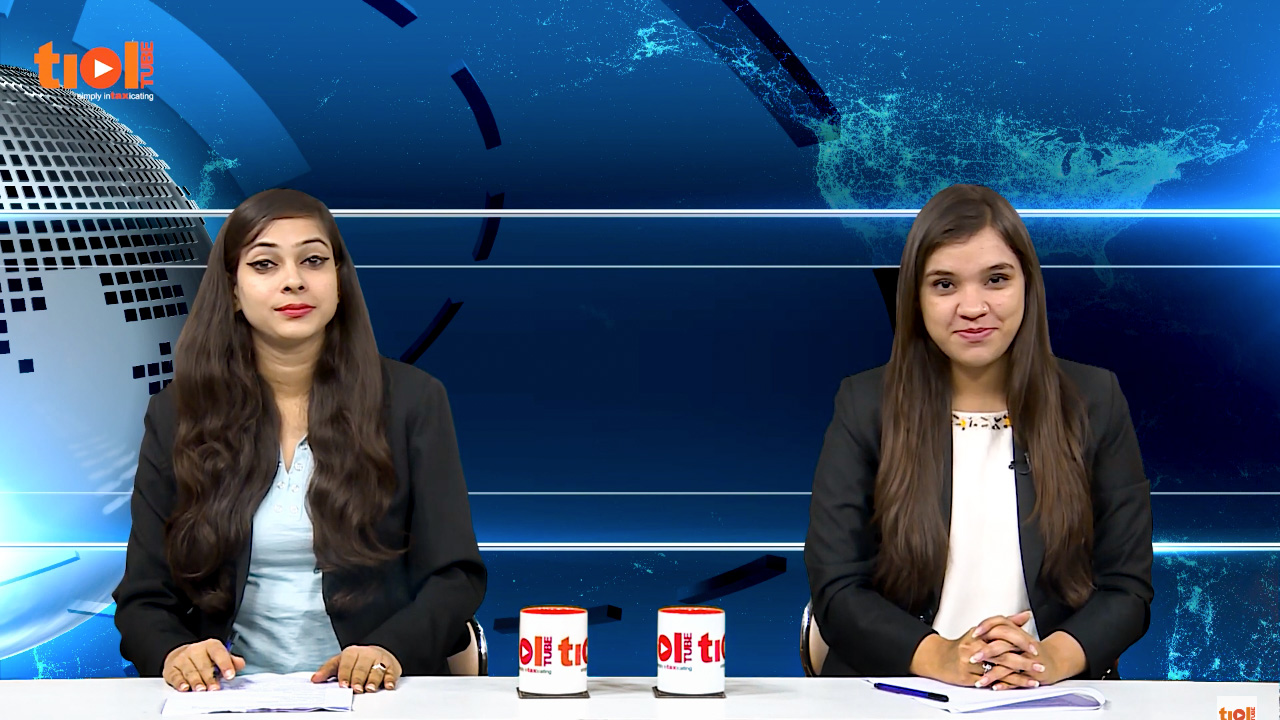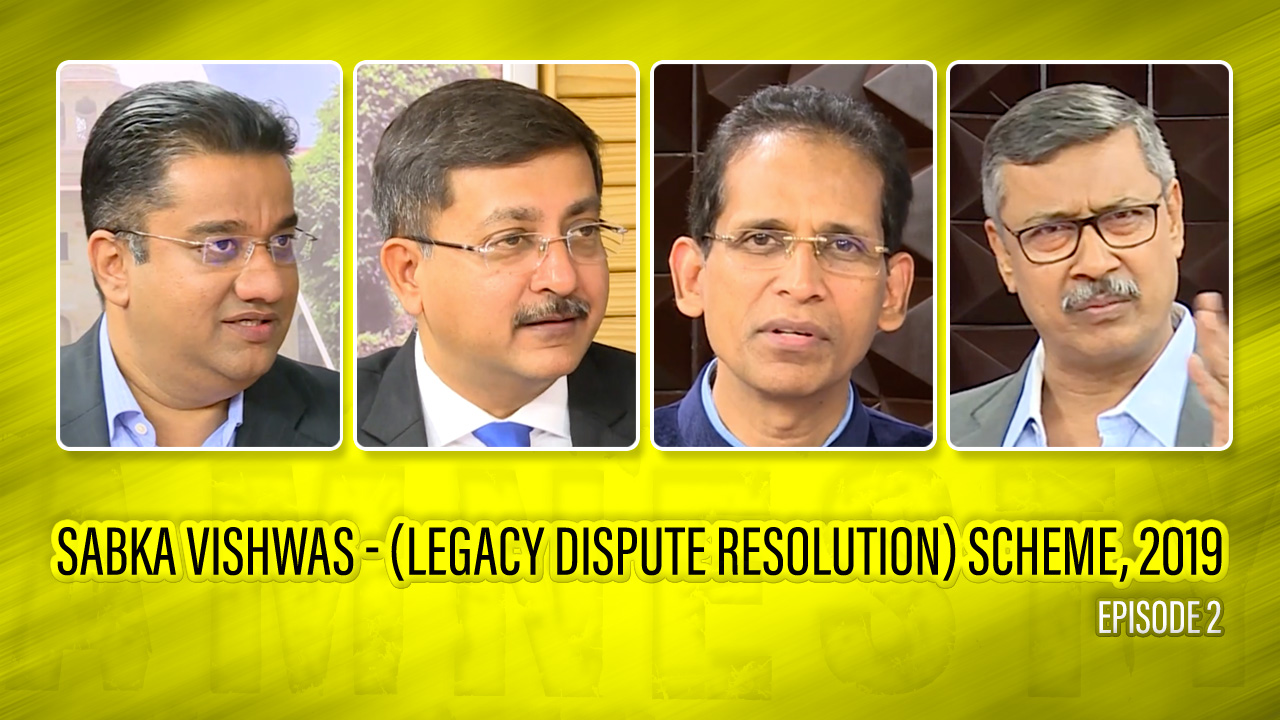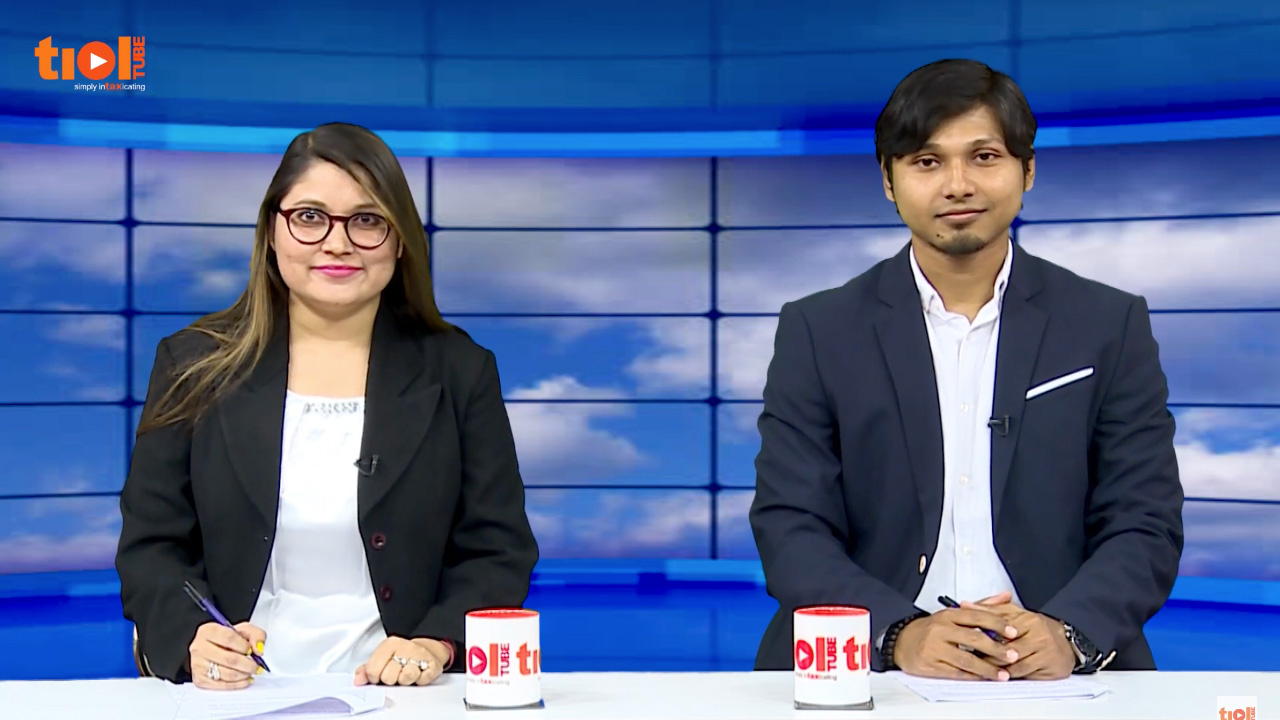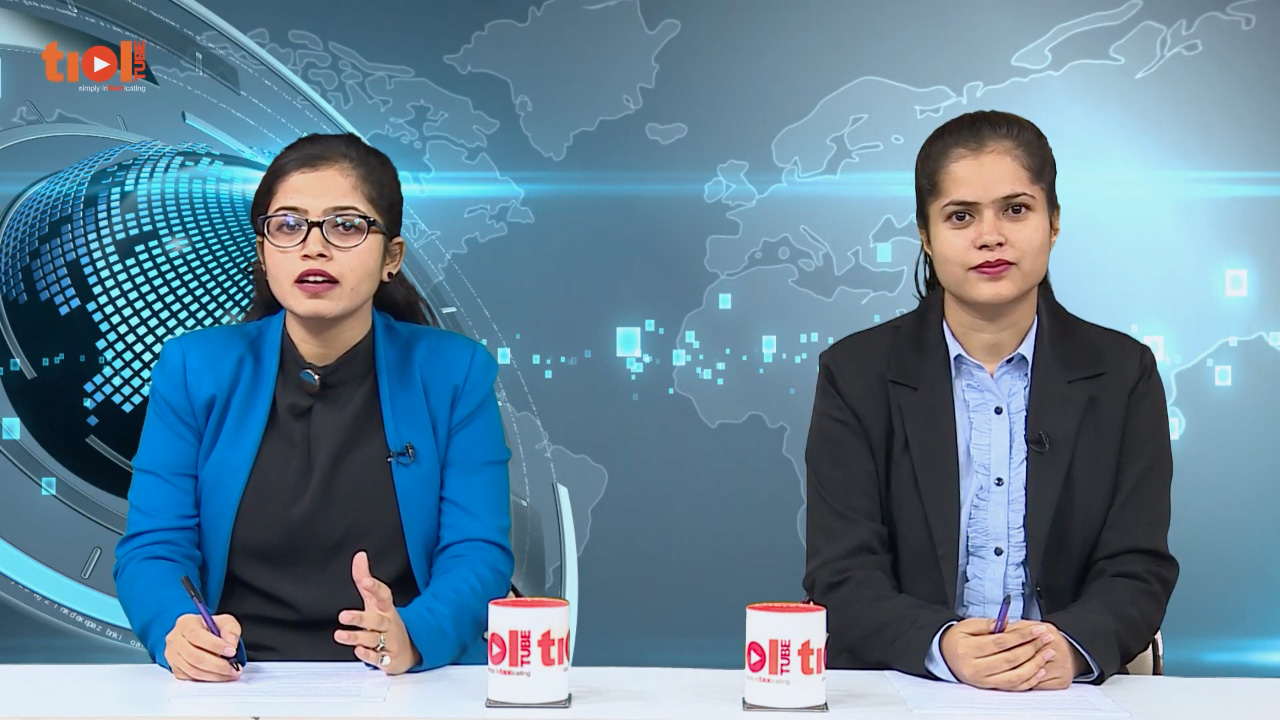|
SERVICE TAX
2019-TIOL-484-SC-ST
Pr. CCE, ST & CT Vs Amadeus India Pvt Ltd
ST - Question that arises is whether prior to issuing the impugned SCN dated 4 th September 2018, the office of the Principal Commissioner ought to have held a pre-notice consultation with the petitioner in terms of para 5.0 of the CBEC Master Circular 1053/02/2017-CX dated 10 th March 2017 - Later, the High Court held that the Revenue completely ignored the Master Circular before proceeding to issue the impugned SCN - In terms Section 37B of the CEA, 1944, as made applicable to service tax by section 83 of the Finance Act, 1994, instructions issued by the CBEC would be binding on the officers of the Revenue - Very object of para 5.0 is to narrow down the scope of the dispute by engaging the Assessee on specific areas where the assessee may require information/clarification from the Assessee regarding alleged evasion of service tax - The mere possibility that at the end of the adjudication process, the Petitioner may have to face consequences for having committed an "offence" under Finance Act, 1994 need not per se render the SCN itself as an "offence related" SCN - If that were to be the logic, then in every case para 5.0 can be dispensed with on the ground that the adjudication of the SCN is likely to be lead to the noticee facing proceedings for having committed an offence - The exception would then become the rule and not vice versa and the need for any pre-notice consultation being rendered redundant - The HC found that it was necessary in terms of para 5.0 of the Master Circular for the assessee to have engaged with the Revenue in a pre-SCN consultation, particularly, since in the considered view of the Court neither of the exceptions specified in para 5.0 were attracted in the present case - without expressing any view on the merits of the case of either party in relation to the issues raised in the SCN, the Court set aside the SCN and relegated the parties to the stage prior to issuance of SCN.
Held - Delay condoned - The Revenue's counsel canvassed that if fresh SCN is to be issued as directed by the High Court after pre-consultation, then the Revenue be given liberty to revive the earlier SCN to obviate any objection regarding limitation - Notice issued to such effect: SC
- Notice issued: SUPREME COURT OF INDIA
2019-TIOL-3213-CESTAT-MUM
State Bank Of India Vs CST
ST - Error in recording submissions made during the course of argument - definitely an error apparent on record - paragraph 3.2(iii) amended - ROM application disposed of: CESTAT [para 4, 5]
- Application disposed of: MUMBAI CESTAT
2019-TIOL-3212-CESTAT-MAD
Ocean Interiors Ltd Vs Commissioner of GST & CE
ST - Department was of the view that the appellants failed to include the value of materials consumed by them while providing the finishing services - Further, it was seen from the invoices raised by the assessee to their client that they were paying VAT on 79.85% of the value of invoices and Service Tax on 20.15% of the remaining value - Department was of the view that the appellant has to pay Service Tax on the gross amount received for completion and finishing services – demand confirmed and penalty imposed, therefore, assessee in appeal before CESTAT.
Held:
++ Rule 2A continues after 2012 also and the Composition Scheme has been replaced and inbuilt in the Rules itself in a different form whereby the service portion in Works Contract is specified at a percentage of gross value based on the nature of activities on which normal Service Tax rate applies instead of a lower composition rate on the gross value under the erstwhile composition scheme - Thus, the principle of valuation of taxable service under the amended provisions also remains the same: CESTAT [para 7.2]
++ The appellant has arrived at the value of service portion of Works Contract Service as per Rule 2A (i) whereas the Department has proceeded to arrive at the value as per Rule 2A (ii) for the period after 01.07.2012 and under the Composition Scheme for the period prior to 01.07.2012 - Rule 2A (ii) would apply only if the value is not determined under clause (i) - The appellant in the present case has arrived at the value and also paid VAT as per the VAT Law - The value of transfer of property in goods has to be arrived at on the basis of purchase price of various goods, apportionment of overheads and profit margin - The appellant, being an assessee under the VAT Law, has to abide by the state law for payment of VAT - Thus, he can only arrive at the value of goods used in the Works Contract by applying the VAT Law after deducting the value arrived for payment of VAT; the remaining portion has been subjected to payment of Service Tax - When VAT has already been paid on the value of goods, the same cannot be subjected to levy of Service Tax again: CESTAT [para 7.3]
++ Apex Court in the case of M/s. Safety Retreading Co. (P) Ltd. - 2017-TIOL-28-SC-ST has held that the assessee is liable to pay Service Tax only on the service component, which under the State Act was quantified at 30% - It was also held in that case that the assessee is not liable to pay Service Tax on the total amount for retreading including the value of materials/goods that have been used and sold in execution of the contract – Tribunal in M/s. Sobha Developers Ltd. - 2009-TIOL-2258-CESTAT-BANG has held that the material value sought to be included on the ground that goods are consumed in provision of service and not sold, cannot sustain – Bench is, therefore, of the considered opinion that the appellant has correctly discharged Service Tax on the service portion - demands cannot sustain – appeal allowed with consequential relief: CESTAT [para 8.1 to 8.3, 9 to 11]
- Appeal allowed: CHENNAI CESTAT
2019-TIOL-3193-CESTAT-DEL
Carrier Point Infosystems Ltd Vs CCE & ST
ST - The issue in this appeal is whether the concession given in the tuition fees to some students, as per pre-declared policy, whether the value is includible in the value of taxable turnover for payment of Service Tax - The issue is squarely covered in precedent order in assessee’s own case being - 2018-TIOL-1670-CESTAT-DEL - Accordingly, by following the precedent judgment, the impugned order is set aside: CESTAT
- Appeal allowed: DELHI CESTAT
2019-TIOL-3192-CESTAT-DEL
Ever Alert Security Services Vs CCE & ST
ST - The assessee is registered with Service Tax Department for providing "Security Agency Service" - After receipt of information from service recipient, the Department had gathered that the assessee have received an amount of Rs.9,30,03,946/- from the service recipients - On the basis of these details, a SCN for demanding service tax was issued to assessee for short payment of service tax under section 73(1) of FA, 1994 - Admittedly the assessee was not maintaining the proper record of services provided by them to various service recipient - It is also a matter of record that assessee have not filed any ST-3 return for the demand period between 2008-2009 to 2012-2013 - The Department on its own efforts has collected the required information from various service recipients and on the basis of details of service provided by assessee to various service receivers - The Department have issued a SCN for short payment of Service Tax by assessee - The benefit of Notfn 30/2012 has also been given by adjudicating authority to the assessee - The contention made by assessee that short payment of Service Tax has been calculated on the invoice value of the services provided by them to their service recipient, though the entire amount of invoice has not been realized by them has not been substantiated by assessee either at the time of adjudication not even before Tribunal - Therefore, the contentions made by assessee are not legally sustainable as no evidence has been adduced in support of these claims - It is also a matter of record that the required service tax return ST 3 has not been filed in time and thereby violating the provisions of section 70 of the Finance Act, 1994 read with Rule 7 of Service Tax Rules - The appeal is without any merit and same is dismissed: CESTAT
- Appeal dismissed: DELHI CESTAT
CENTRAL EXCISE
2019-TIOL-2521-HC-P&H-CX
PR Commissioner of CGST Vs KC Pipes Pvt Ltd
CX - The assessee-company manufactures ERW pipes - The Revenue alleged that during the relevant period, the assessee indulged in clandestine clearance of manufactured goods under cover of bills issued by a third company which is a trading firm and that the assessee suppressed the value of clearance of dutiable goods so as to remain below the exemption limit specified in the SSI notification - Based on intelligence inputs, the premises of the assessee-company were searched, pursuant to which the duty demand was raised and penalty was imposed by the adjudicating authority - On appeal, the Tribunal set aside such O-i-O and remanded the matter back to the adjudicating authority, which confirmed the duty demand and penalties - On second round of litigation, the Tribunal quashed the O-i-O - Hence the present appeal by the Revenue.
Held - The appeal is pending hearing - Meanwhile, the Revenue's counsel filed an application seeking to withdraw the appeal as the tax amount involved is lower than the limit of Rs 1 crore as specified in Board Instructions dated 22.8.2019 - Such application of the Revenue's counsel is accepted and the appeal is dismissed as withdrawn: HC
- Appeal dismissed : PUNJAB AND HARYANA HIGH COURT
2019-TIOL-3211-CESTAT-BANG
Kammadi Plywood And Block Boards Vs CCE & ST
CX - Undervaluation of Veneers and plywood - Duty evaded post 01.07.2000 requires to be arrived at on the basis of transaction value - issue needs to go back to the Adjudicating Authority, who shall re-quantify the duty evaded after going through the available records to arrive at the value in respect of each of the transactions after giving an opportunity to the appellants of being heard - penalty imposable under Section 11AC of the Central Excise Act shall be equal to such duty re-quantified - Revenue has filed the appeal E/263/2008 on the grounds that the Commissioner has not imposed any penalty under the provisions of Rule 26 of Central Excise Rules, 2002 on the Managing Partner - Bench finds that Commissioner has given reasoning for such a conclusion, therefore, no interference is warranted in this regard - Revenue appeal is, therefore, not maintainable: CESTAT [para 16 to 18]
- Assessee appeal allowed by way of remand/Revenue appeal rejected: BANGALORE CESTAT
2019-TIOL-3191-CESTAT-AHM
Contemporary Targett Pvt Ltd Vs CCE & ST
CX - The assessee-company manufactures tooth brushes falling under Chapter 96 of First Schedule to CETA 1985 - It was noticed that the assessee cleared tooth brushes in combo pack, bulk and naked condition to toothpaste manufacturerss for free distribution by inserting the brush in the tooth paste pack - The tooth brishes classified under Chapter Sub Heading 9603 2100 of CETA were assessed by the assessee on transaction value based on contract price u/s 4 of the CETA - The Revenue opined that the tooth brushes so cleared were required to be assessed u/s 4A of the CEA on MRP basis instead of transaction value, on the basis that the toothbrushes manufactured by the assessee for its customer were also packed in the blister packing as per the Standards of Weights & Measures Act - Demand for differential duty was raised and was confirmed upon adjudication - Hence the present appeal.
Held - An identical issue came up in the assessee's own case for a previous period and which was settled by the Tribunal, which relied on the Apex Court's decision in Nestle India Limited to hold that promotional packs of Maggi noodles supplied free with packet of Tata Tea and such packs bore no MRP with declaration "free with Tata Tea" - Hence the provisions of the Standards of Weights & Measures Act 1976 and Rules made thereunder would not apply on such supplies - It was held that as such valuation of such goods could not be done u/s 4A of the CEA 1944 - It was then held that the toothbrushes supplied by the assessee which is not for retail sale but for free supply by the toothpaste manufacturer will not be valued u/s 4A in the assessee's hands & that the valuation done u/s 4 was correct - In light of such findings, the O-i-As in question merit being quashed: CESTAT
- Assessee's appeals allowed: AHMEDABAD CESTAT
2019-TIOL-3190-CESTAT-KOL
Ellenbarrie Exim Ltd Vs CCE
CX - The assessee-company imported non-alloy Steel wire rods and lead scrap radio/re-melted lead ingots under Duty Free Credit Entitlement certificates in terms of exemption Notfn No 53/2003-Cus - Such imported goods were used to manufacture non-alloy steel wire and lead ingots through job work which were cleared on payment of CX duty during the relevant period by utilizing Cenvat credit availed on CVD amount debited in DFCE certificates - The Revenue claimed that the assessee could adjust credit only when the amendment was made to the Notfn No 53/2003 vide Notfn No 97/2005-Cus - SCN was issued to the assessee, the proposals of which were confirmed on adjudication, with demand being raised for recovery of duty with EC and interest and equivalent penalty u/r 15(1) of the CCR 2004 - The Commr. also dropped the proposal for denial of credit in respect of certain BoE - Hence the present appeals.
Held - The issue pertaining to denial of cenvat credit for the period prior to 17.11.2005, i.e., before issuance of Notfn No 97/2005 is squarely settled by this Tribunal in the assessee's own case in Final Order no. 77250/2018 dated 18.07.2018 - Hence the assessee is entitled to avail credit for the period prior to 17.11.2005 - In the present case, the Revenue's objection is that the assessee violated Condition No 7 of Notfn No 53/2003 inserted on 17.11.2005 by availing Cenvat credit of additional duty against the amount debited in the certificate prior to said date - Perusal of amended notfn clarifies that exemption from payment of duty would be available provided that all conditions contained in the Notfn are complied with by the assessee - If it is assumed that one condition is not fulfilled, the very exemption from payment of specified Customs duty provided by the Notfn No 53/2005 could not be made available to the assessee - Presently, the authorities did not dispute the exemption claimed by the assessee - Hence it is not open to them to dispute the availment of credit which is otherwise available as per the CCR 2004 - Hence the assessee is eligible for credit of CVD paid through debit in the DFCE certificates even prior to 17.11.2005: CESTAT
- Assessee's appeal allowed: KOLKATA CESTAT
CUSTOMS
2019-TIOL-3189-CESTAT-MUM
Shashi Dhawal Hydraulics Pvt Ltd Vs CC
Cus - The assessee-company imported Hydraulic Pump and filed bills of entry, declaring its value - On assessment, the declared value had been enhanced, consequent to which demand for differential amount of duty was raised and fine was imposed in lieu of confiscation u/s 125 of the Act - Penalties were imposed on the importer company along with personal penalties on its directors - Hence the present appeal.
Held - The declared value of the imported goods appears to be unduly low in comparison with the other imports and the price at which the manufacturer sold Hydraulic pumps - It is also not less significant that the assessee failed to produce an invoice from the manufacturer - In such circumstances, the rejection of the declared value is upheld - The responsibility of the AO does not cease with the rejection of declared value and in accordance with the sequential hierarchy of valuation prescribed for resorting to Customs Valuation (Determination of Price of Imported Goods) Rules, 1988, revised assessable value was to be arrived at - Failure to do so would render rejection u/s 10A to be an exercise in futility - The adjudicating authority adopted a value which coincides with the price declared in the import made by the group concern subsequent to the import of the goods - Hence there is no reason to discard the enhanced value adopted - There is no evidence on record that the value declared by the importer is not the price actually paid for the goods: CESTAT
Held - Confiscation - The scheme after incorporation of Rule 10A of Customs Valuation (Determination of Price of Imported Goods) Rules, 1988 presents an entirely different scenario - Notwithstanding the declared value & absence of evidence of a different transaction value, the provisions of rule 10A switches the onus to the importer and, in the event of failure to satisfactorily discharge the onus, resort to the sequential application of modes of valuation in the Rules has the approval of law - Hence there are two discrete processes for recovering differential duty - Recourse to enhancement of value does not, ipso facto, arise from mis-declaration of the value in the bill of entry but from the particular scheme of assessment - Invoking Section 111 must be based on evidences other than enhancement of assessable value - The element of mens rea is not an essential requirement for proceeding with confiscation, a standard handed down from before the existence of Rule 10A - It does not justify confiscation merely because assessable value was enhanced - That the legislature considered it necessary to insert Section 114A makes it clear that it was not intended for Section 111 to be invoked where recovery of duty had been ordered - Evidence of any misdeclaration must be put forth - In the present circumstances, the confiscation lacks authority of law & consequent invoking of Section 112 is untenable too: CESTAT
- Assessee's appeal partly allowed: MUMBAI CESTAT | |







